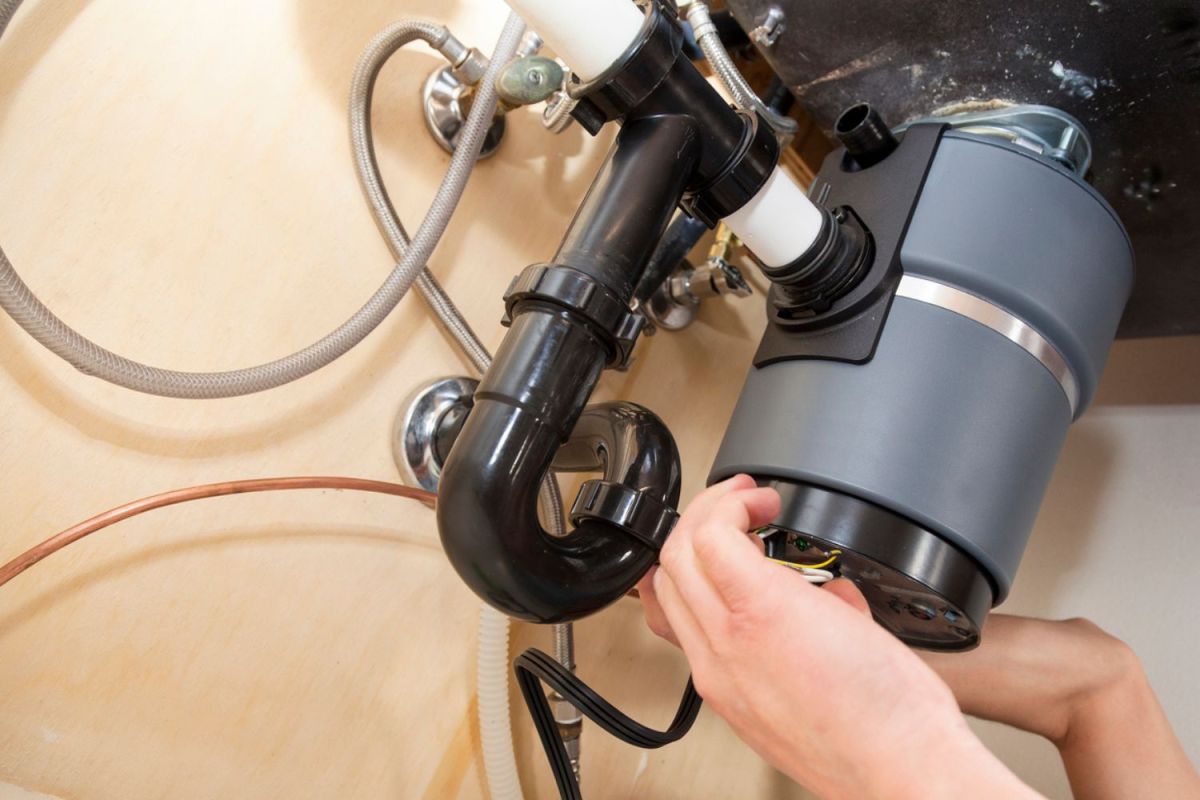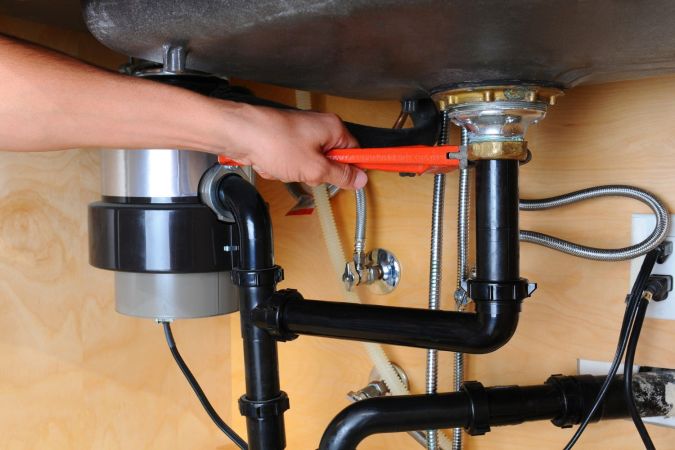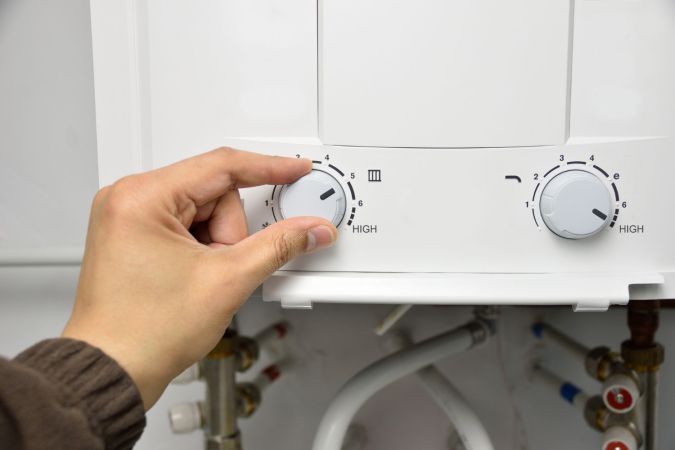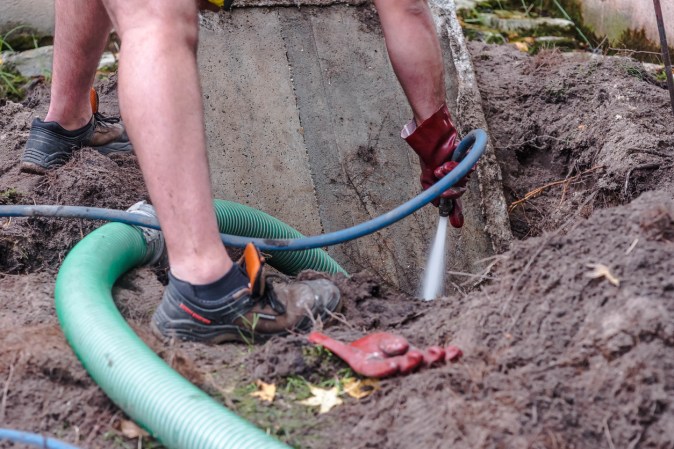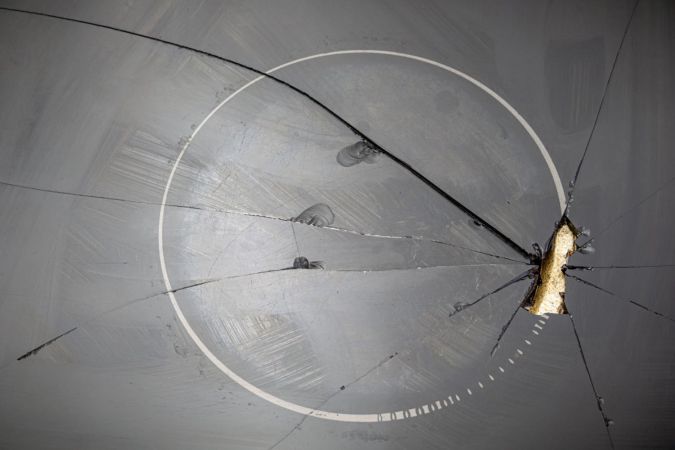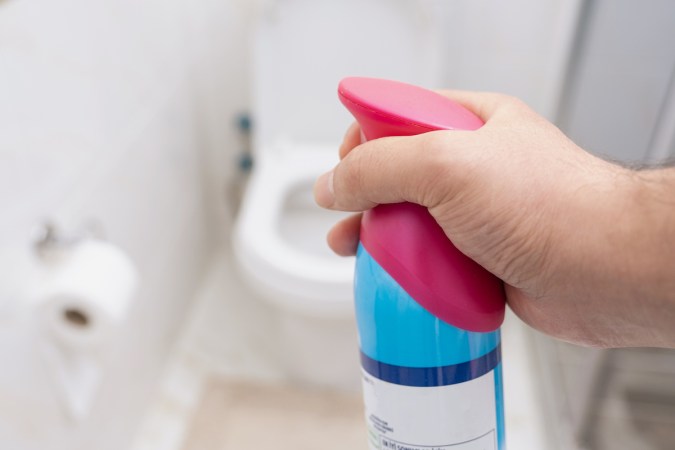We may earn revenue from the products available on this page and participate in affiliate programs. Learn More ›
Q: We’ve had the same garbage disposal since we moved into our house about 10 years ago. It’s been struggling lately and making weird grinding sounds. Should I be worried that it’s about to break down? How long do garbage disposals last?
A: The short answer is, say goodbye to your garbage disposal because it’s probably on its last legs. For all their wear and tear, garbage disposals are surprisingly resilient and can keep running for a long time—but everything breaks down eventually. How long do garbage disposals last? It can vary depending on the model, usage, and maintenance, but 8 to 15 years is a pretty typical lifespan for a garbage disposal.
Considering how much food waste goes through a garbage disposal over the years, it shouldn’t come as a surprise that these units can get pretty beat up in the long run. So even though they can run for a decade or more if properly maintained, it’s a good idea to have a plan when they inevitably break down. The good news is that homeowners don’t necessarily need to pay out of pocket for a new unit if they have a home warranty that covers their appliances. Garbage disposals are often covered by the best home warranty companies, so households can easily replace a garbage disposal that’s given all it can—and without breaking the bank.
Homeowners can also extend the life of their disposal by taking good care of it: being mindful of what kind of food they put down the drain, cleaning the unit on a regular basis, and making sure to run it every now and then. With proper maintenance, the shelf life of a garbage disposal can easily exceed a decade.
Garbage disposals can typically last anywhere from 8 to 15 years, depending on maintenance and care.
How long does a garbage disposal last on average? A good garbage disposal can serve a household for as long as 15 years, if the homeowners properly maintain it. In general, garbage disposals that are either improperly cared for or contain low-quality components may last no more than 8 years. If homeowners are especially negligent, making no effort to clean the unit or refrain from disposing harmful food waste such as coffee grounds or olive oil, then a garbage disposal could break down even sooner than that. In worst-case scenarios, a garbage disposal may only run for a few years.
Assuming owners are cognizant of a disposal’s maintenance needs, this appliance could easily continue running for a decade or more. According to the International Association of Certified Home Inspectors, the average household will typically need to replace its garbage disposal every 12 years or so.
Models with high-quality components are often more likely to continue running for a longer period of time.
Many homeowners wonder, “How long do disposals last?” While 8 to 15 years is a typical range, the exact answer may depend on the unit model. Like other types of appliances, high-end garbage disposal systems tend to run longer than budget models. For instance, how long do InSinkErator garbage disposals last? Some models come with 10 year warranties, suggesting a longer lifespan. With proper care, an InSinkerErator unit could run anywhere from 10 to 15 years. Often, that longer life expectancy can be attributed to the higher-quality components, including blades, gears, and motors, that these units possess. Because these components use better materials, they tend to be more reliable and less likely to break down or accumulate food waste that could eventually cause operational problems.
Putting oil, grease, coffee grounds, bones, and eggshells down the garbage disposal could shorten its lifespan.
Some homeowners vastly overestimate the capabilities of a garbage disposal, routinely using it to dispose of food waste that could damage the unit. Despite the name, garbage disposals are not designed to break down every kind of refuse. There are certain types of debris that should never be placed in a garbage disposal. Harder materials like chicken bones, eggshells, or uncooked pasta noodles can easily dull a disposal’s blades, which will reduce the unit’s effectiveness over the long run.
Even seemingly harmless food waste such as cooking oil, grease, or coffee grounds can cause issues for a garbage disposal. This kind of debris can combine with other waste to form a sludge that may clog drains or the unit itself. In general, it’s recommended that homeowners avoid pouring oil, grease, or coffee grounds down the drain—garbage disposal or no garbage disposal—so this is good evergreen advice for anyone to follow.
Starchy or fibrous vegetables—such as potatoes and asparagus—may get tangled in the gears and damage the unit.
Answering the question “how long should a disposal last?” may not always be as clear-cut as it first appears because not everyone uses their garbage disposal the same way. The lifespan of garbage disposal units can be significantly affected by the type of debris it breaks down on a regular basis. Homeowners may think that soft vegetables like cooked potatoes, asparagus, or onions are fair game to put down their garbage disposal. However, these appliances can have a hard time breaking down starchy foods, and potato skins can easily wrap around gears, blades, and other mechanical parts.
The same holds true for onion peels and asparagus stalks, which have a fibrous and stringy structure. When broken down in a garbage disposal, these vegetable fibers can get tangled up and cause the unit to malfunction. If this is an ongoing habit, this type of debris will continue to accumulate and eventually the disposal could stop working altogether. At that point, there may be no other recourse but to buy a replacement.
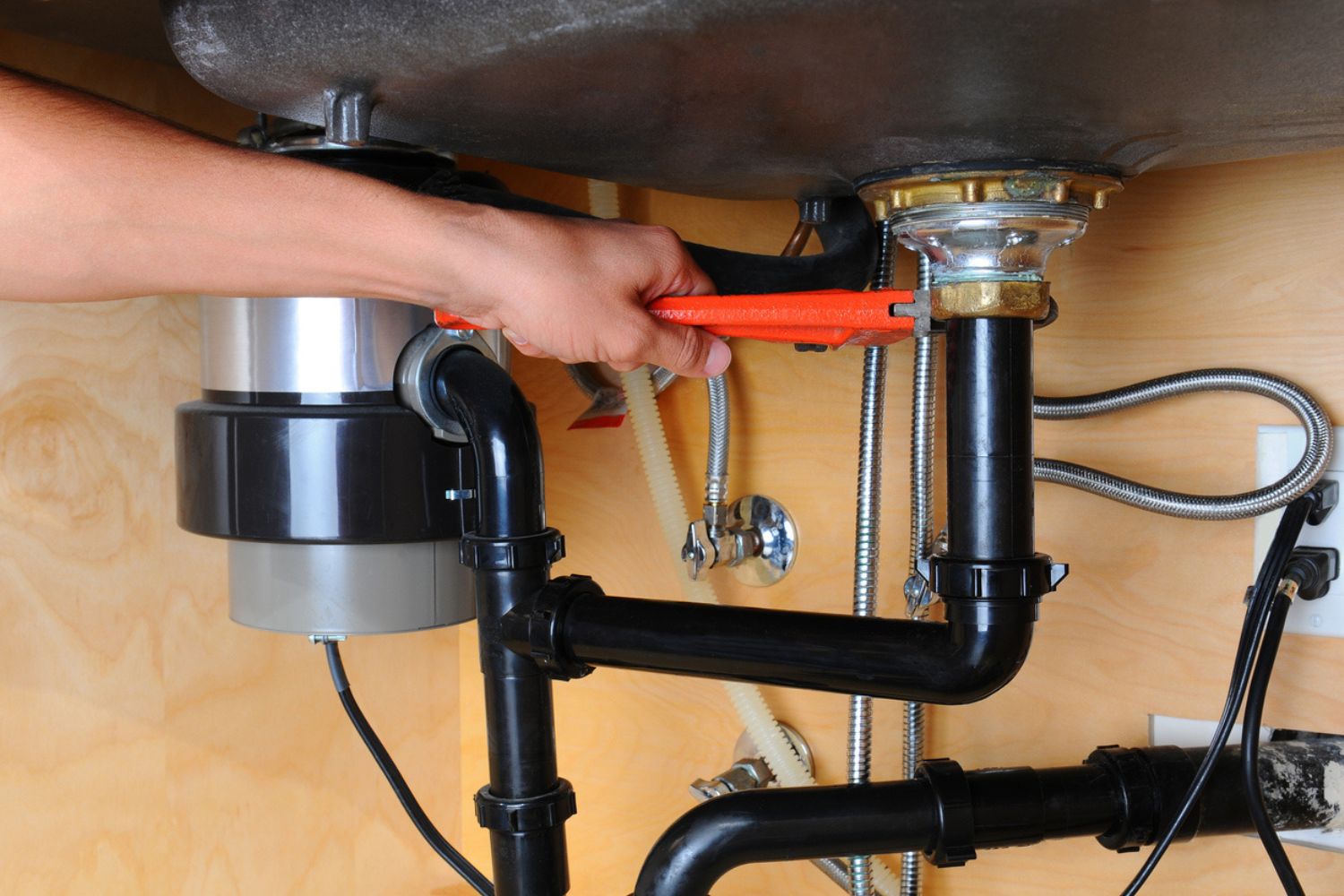
Garbage disposals could also break down quickly if they are improperly installed.
Installing a new garbage disposal is the kind of home improvement job that seems ideal for a DIY project. It doesn’t require any specialized knowledge or skills to complete and, if everything goes smoothly, installation shouldn’t take too long to complete. While many homeowners can replace a garbage disposal on their own without professional assistance from a licensed plumber, they should be aware that doing a poor job could cause issues down the road.
For instance, pipes that are improperly sealed may lead to leaks that could eventually cause rust within the unit itself. If the disposal is not properly set and attached to the sink drain, it could place excessive strain on the unit, which may shorten its lifespan. When it comes time to replace an aging garbage disposal, it may be worth the money to have a professional handle the installation. If the appliance is covered by a home warranty, then homeowners may not even need to pay out of pocket for that service.
In addition, overuse can wear down the blades and burn out the motor.
Garbage disposal units are not meant to be used every time a member of the household uses the kitchen sink. Even the best garbage disposals have a certain lifespan, and the more they’re used, the quicker their components will wear down and eventually give out. Homeowners should be mindful of the wear and tear garbage disposals are subjected to and refrain from running them too often.
Overuse can put more strain on disposals than intended, wearing down the motor and shortening the lifespan of garbage disposal units. Garbage disposal blades also dull over time, so the more debris they need to break down, the quicker they will lose their sharpness. When possible, homeowners should try to place scraps and food waste into a trash receptacle rather than the garbage disposal. Doing so will help keep the unit working for a longer period of time.
Even so, running the unit every few days can help extend the life of a garbage disposal.
While homeowners should be cautious of overusing their garbage disposal, they should also be careful about letting it sit for too long. The internal components of a disposal’s hopper chamber—such as the blades—tend to be made of metal. Add the fact that water is constantly running through the appliance, and you have a recipe for rust.
That’s especially true if households neglect to run the unit for several days or weeks because the kitchen sink drain has not experienced any clogs. In that scenario, water will simply rest on the blades and other components, and then it’s only a matter of time before rust begins to form. Rust can lead to cracks in the unit, which will then require replacement. Routine garbage disposal care and maintenance involves running the unit every few days to clear any accumulated debris or water from the appliance.
Cleaning the garbage disposal on a weekly or monthly basis can keep it running longer, too.
Regular cleaning will clear a garbage disposal of debris, remove unwanted odors, and help the unit run smoothly. Homeowners should try to clean their disposal every week or two, but even a monthly cleaning schedule should keep it functioning as expected for a long time.
Cleaning a garbaged disposal is a pretty quick and easy task, requiring no more than 10 minutes to complete. Putting a dozen ice cubes and a handful of coarse salt down the drain should do the trick. Rock salt will provide the best results, but kosher salt or sea salt could work in a pinch. Run the unit for about a minute with the faucet running until all debris has been removed. For a deeper clean, homeowners can pour a bit of vinegar and baking soda down the drain, which will help kill any lingering bacteria in the disposal.
One important point to remember is that there’s no reason to reach into the unit itself while cleaning, so for the sake of safety, homeowners should refrain from putting their hands inside the drain to remove any accumulated food waste.
Grinding noises, frequent clogs, and unpleasant odors are all telltale signs that a garbage disposal could be on its last legs.
Garbage disposals are noisy appliances, but it’s important to distinguish normal operational sounds with noises that suggest the unit is struggling. Often if a garbage disposal is emitting a grinding noise when in use, that’s an indication that there’s a problem with the appliance. Another red flag to keep an eye out for is any bad odor that emanates from the kitchen sink or drain. A smelly garbage disposal could just be due for a cleaning, but if that odor persists, it may mean that the unit is no longer able to fully break down and remove food waste.
Frequent clogs are another problem that could point to the end of the unit’s useful life. Blades will wear down and dull over time, and eventually they may not be able to break down debris into small enough pieces to pass through the unit. When this happens, it’s common for larger pieces of food to collect in the hopper chamber and lead to clogs. Alternatively, a garbage disposal that repeatedly clogs could be functioning as intended, but it may not be large enough to handle the amount of waste a household produces. In that case, it could be a good idea to purchase a bigger unit with more horsepower.
Electrical or power issues could indicate that the motor has burnt out and needs to be replaced.
As a garbage disposal gets on in age, it may suddenly lose power at times. While some power outages may be caused by the home’s electrical circuitry, issues relating exclusively to the garbage disposal could indicate that the motor is beginning to fail. In many cases, turning the unit off and on or unplugging the appliance and then plugging it back in can correct the issue. These problems can worsen over time, however, and homeowners may find that they need to reset the unit more frequently to get it running again.
A single power outage could be a one-time event, but if the unit continues to experience electrical problems, that could be a sign that it’s nearing the end of its lifespan. While resetting the unit can serve as a temporary fix, eventually the motor will burn out entirely. At that point, homeowners will need to replace the entire unit.
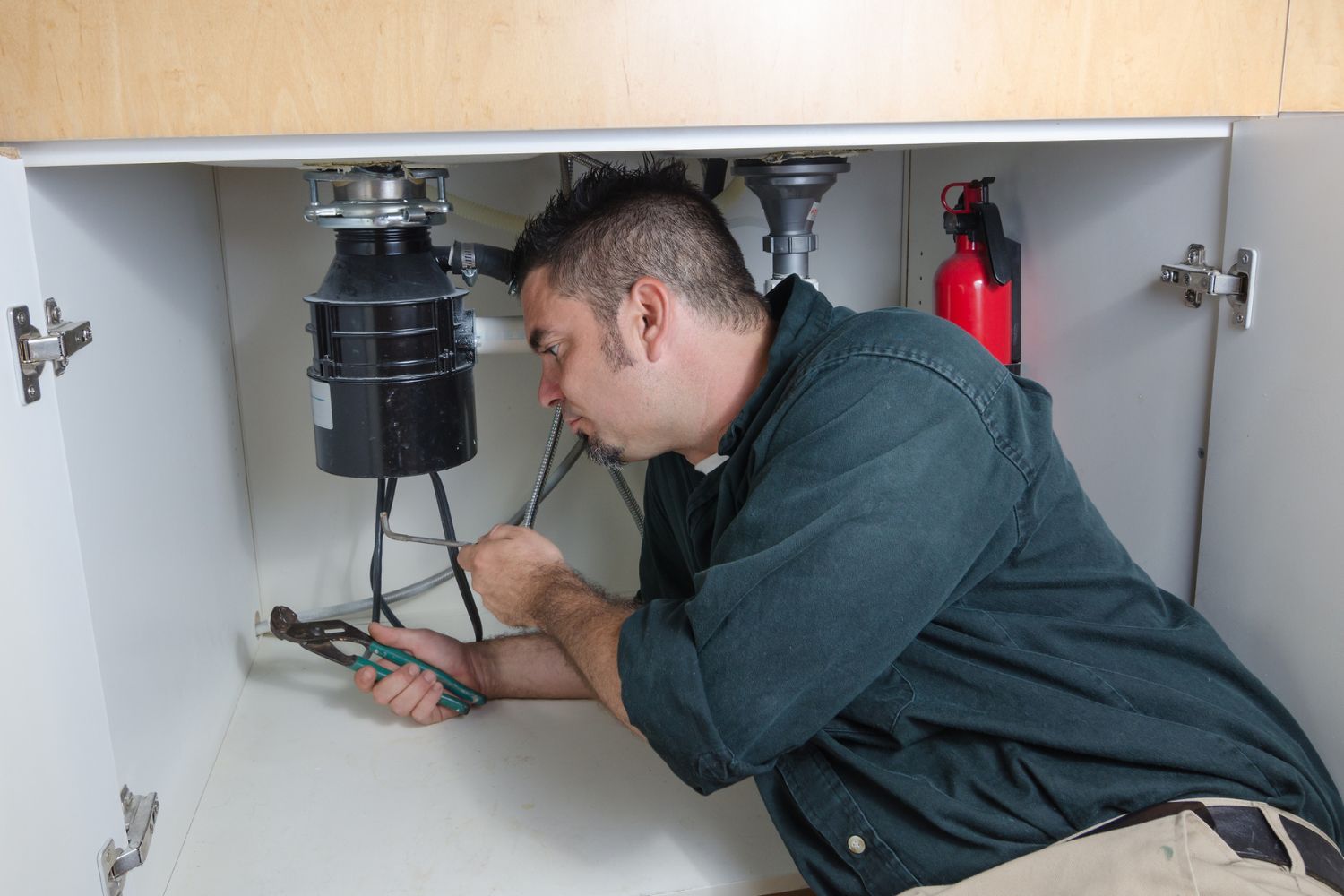
If your garbage disposal is leaking, then it may be time to look for a replacement.
A leaking garbage disposal can be a huge headache, potentially causing water damage to kitchen cabinets or creating mold and mildew. It can also mean that there is a significant problem with the unit itself—one that cannot be easily repaired. If the disposal starts to leak, first check for the source of the leak. A leaking pipe may simply need to be tightened to fix the issue. If water is dripping from the flange that connects the disposal unit to the sink, then it may not be sealed correctly. In that case, homeowners can remove the old plumber’s putty and use a fresh application to reseal the connection.
Water dripping from the garbage disposal itself, however, could mean that there’s a crack in the unit. Over time, internal components can rust from all the water that courses through them, and that rust may eventually crack. Once the body of the garbage disposal springs a leak, it’s probably time to buy a replacement.
A manufacturer’s warranty may not cover the full life of a garbage disposal, requiring homeowners to pay out of pocket for a new unit.
Many garbage disposals come with a manufacturer’s warranty that’s meant to protect customers in case they purchase a faulty product that fails to meet the manufacturer’s typical operating standards. A manufacturer’s warranty will often replace the unit with a similar model at no additional cost. However, given that garbage disposals often run for such a long period of time, there’s no guarantee that the warranty will still be valid if a unit breaks down in 10, 12, or 15 years. In that case, homeowners would need to go to a home improvement store and buy a new unit themselves. They could then attempt to replace the disposal on their own or pay a plumber to handle installation.
Garbage disposals may be covered under a home warranty, though—which will pay for replacement and professional installation.
There’s another option to consider, though. Home warranties cover a wide variety of appliances in case they break down and need to be repaired or replaced. Depending on the terms of the home warranty, it may include garbage disposals as part of that coverage. As such, households with a home warranty in place could have the entire cost of buying and installing a new garbage disposal covered without needing to pay anything out of pocket. The question of “how long do garbage disposals last?” becomes less urgent because warranty holders can feel confident that any repair or replacement costs will likely be covered by their warranty provider when their garbage disposal eventually fails.
Homeowners may feel that they need a home warranty anyway to help pay repair or replacement costs on more expensive appliances that are nearing the end of their lifespans. While replacing a garbage disposal may not be as large a project as installing a new washing machine or refrigerator, it still costs time and money to complete. Homeowners who lack experience with this kind of home improvement project may run into issues that could lead to leaks, water pressure issues, or water temperature problems. For some people, it may be worth the cost to have a professional deal with installation, and with a home warranty covering their garbage disposal, they may not need to worry about footing the bill at all.

